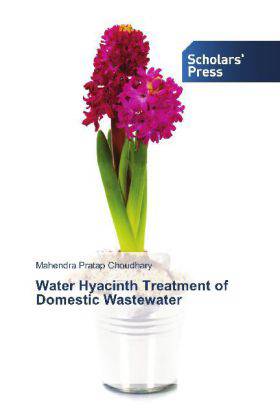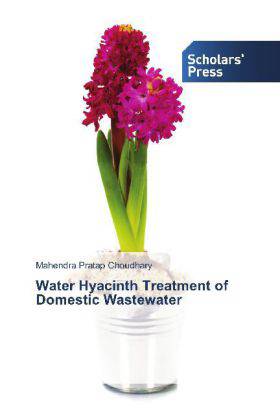
Door een staking bij bpost kan je online bestelling op dit moment iets langer onderweg zijn dan voorzien. Dringend iets nodig? Onze winkels ontvangen jou met open armen!
- Afhalen na 1 uur in een winkel met voorraad
- Gratis thuislevering in België vanaf € 30
- Ruim aanbod met 7 miljoen producten
Door een staking bij bpost kan je online bestelling op dit moment iets langer onderweg zijn dan voorzien. Dringend iets nodig? Onze winkels ontvangen jou met open armen!
- Afhalen na 1 uur in een winkel met voorraad
- Gratis thuislevering in België vanaf € 30
- Ruim aanbod met 7 miljoen producten
Zoeken
€ 88,95
+ 177 punten
Omschrijving
Water Hyacinth (Eichhornia crassipes) is a fast-growing, free-floating aquatic weed having a unique survival capacity and a quest for nutrients to grow. Complete eradication of water hyacinth is quite impossible and hence utilization of its scavenging capacity has been the only way out to get rid of this obnoxious weed as well as to meet out the requirements of treating large volumes of waste waters due to increased population and economic development world over. The aim of this book is to present the positive aspect of water hyacinth through its utilization and at the same time to come out with an easy, economical and efficient method of treating domestic waste water. This method is quite efficient in removing pollutional parameters of domestic waste water such as BOD, COD, suspended and dissolved solids etc. Another advantage is re-use of the treated waste water for non-potable purposes like industrial, agricultural or gardening etc. and furthermore the plant biomass produced during the process can be used as a fertilizer, animal feed, soil enrichment material and a good source for production of bio-gas with high percentage of methane.
Specificaties
Betrokkenen
- Auteur(s):
- Uitgeverij:
Inhoud
- Aantal bladzijden:
- 228
- Taal:
- Engels
Eigenschappen
- Productcode (EAN):
- 9783639717686
- Verschijningsdatum:
- 23/05/2014
- Uitvoering:
- Paperback
- Formaat:
- Trade paperback (VS)
- Afmetingen:
- 152 mm x 229 mm
- Gewicht:
- 340 g

Alleen bij Standaard Boekhandel
+ 177 punten op je klantenkaart van Standaard Boekhandel
Beoordelingen
We publiceren alleen reviews die voldoen aan de voorwaarden voor reviews. Bekijk onze voorwaarden voor reviews.











